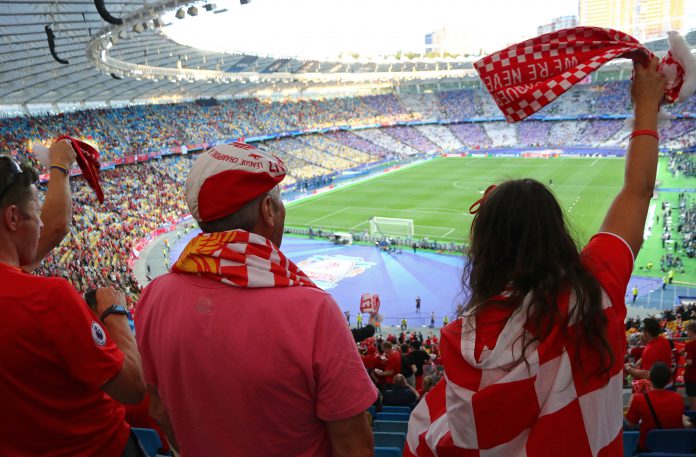Andrew Morgan, International Director at Independent Content Services, says that translation and transcreation are key to sports clubs expanding into global markets
Sport is global in nature and for years clubs and teams have looked to international markets to establish their brands, strike a chord with consumers and, ultimately, drive revenues.
One of the most successful examples of this is the popularity of the English Premier League in China – it is the second most watched sport in the country behind the NBA.
This has presented teams with tremendous opportunities to build brand equity in the country and, via ticket sales and merchandise, cash in.
Of course, these opportunities are not just limited to the English Premier League and China – all clubs from all sports can leverage the global nature of the industry.
But expanding a club’s presence into new markets around the world is a tough task and it requires a lot of moving parts coming together seamlessly.
One of those parts is translation and transcreation – clubs needs to engage consumers in their native language without losing the meaning of marketing collateral and adverts.
Below, I will discuss how sports clubs and organisations can nail translation and transcreation, as well as some of the risks of not getting it right.
First things first, definitions:
Before we dig into the details, it is important to clearly understand the difference between translation and transcreation.
Translation: translating words or text from one language to another.
Transcreation: creative translation that involves translating a message from one language to another, while also preserving the emotional context and implied intent of the original text.
This includes an element of creative licence in order to make the translation more culturally relevant and accurate.
Both are required to help clubs to expand into new markets. Being a fan is all about engagement, so it is vital clubs communicate with consumers in their native language.
Clubs are a culture:
Sports clubs are a culture; they are a community of fans striving towards the same goal.
Translation allows international fans to go on the same journey – from the backroom to how the club is being run via getting to know the players – in a language they fully understand.
Clubs should also take into account their players and the international following they may have; some will play for country as well as club, and this provides an additional opportunity to expand their reach into new markets.
As an example of this, just look at how much interest there is in Liverpool Football Club in the Egyptian market thanks to Mo Salah.
To maximise these opportunities, clubs should therefore translate their websites and offer audio and video content in languages other than just English.
It is worth pointing out that while English is a global language, it is still not understood by more than 80% of the world’s population so you are missing out on a huge number of potential customers if you do not consider translating content.
Supporting sales:
Translation and transcreation also support sales, which is based predominantly on consumer trust. It is much easier to foster this trust in someone’s native language.
For example, if a club publishes a book about its history, the book must be translated into the mother tongue of the country where it is being sold.
If this is not done properly, the consumer will be unhappy with the product and their trust in the club will decrease.
The same goes for shirt sales (a fairly substantial revenue stream for clubs). Online stores must be translated in order to ensure the sales process is effective and efficient.
Things to consider:
Translation and transcreation is not the silver bullet clubs need to guarantee success in international markets – a careful and considered approach is required.
There are several factors that can impact the commercial viability of a club entering a new market, not least the appeal of players in particular regions and the game time they receive.
Take Junichi Inamoto at Arsenal and Dong Fangzhuo at Manchester United.
Both players have potentially huge appeal to Asian audiences, but their commercial value has not been properly unlocked due to a lack of playing time.
What’s more, clubs should also consider the popularity of the sport they play in the market they are seeking to target. Premier League football is massive in China, cricket less so.
It is always worth doing market research before increasing your reach and committing to the cost of translation and transcreation as it can be high.
Tips for success: Of course, there are some key guidelines that clubs should always stick to when translating and transcreating content. These are:
- Always use native speakers who know local parlance to generate authenticity. Fans of the game, even fans of the club, are ideal.
- Have all texts proofread by a second native speaker to ensure quality.
- Offer a range of content including written, audio and video and ensure the content is tailored to each market you are targeting.
Finally, social media should play a significant role in how a club extends its reach into a new market. We always recommend setting up different language accounts across the main social channels – Facebook, Twitter, Instagram, Snapchat, etc.
Liverpool Football Club, for example, has 24 different Twitter accounts including US and Australia specific versions.
In addition to this, consider the social media platforms that are the most popular in your target market – in China, Sina Weibo is king while in Russia VKontakte is preferred over Facebook.
Translation and transcreation is a difficult area to get right, but it is critical for sports clubs looking to expand their reach into, and revenues from, international markets.






















